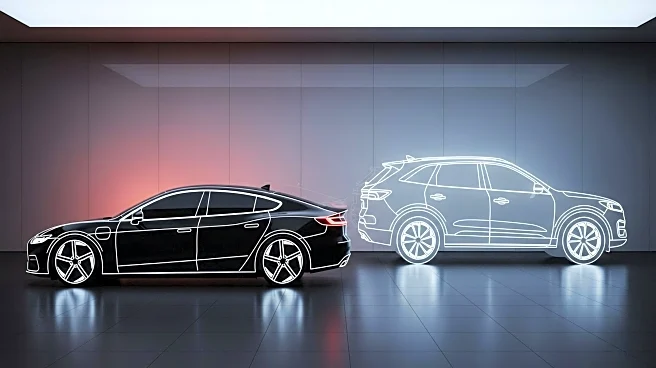What is the story about?
What's Happening?
Ford has announced the discontinuation of the Focus model, marking the end of an era for the popular compact car. Launched in 1998 as a replacement for the Escort, the Focus was celebrated for its modern design and excellent handling. Over the years, it evolved through several generations, offering various body styles and performance variants like the ST and RS. However, the growing trend towards small SUVs and electric vehicles has led Ford to phase out the Focus, following the earlier discontinuation of the Fiesta.
Why It's Important?
The discontinuation of the Ford Focus reflects significant shifts in the automotive industry, particularly the move towards electrification and the increasing popularity of SUVs. This change impacts consumer choices, as traditional compact cars are replaced by more versatile and eco-friendly options. The Focus's departure also signals Ford's strategic pivot towards electric vehicles, aligning with global trends and regulatory pressures to reduce emissions.
What's Next?
Ford's focus on electric vehicles and SUVs suggests further innovation and development in these areas. The company may introduce new models that cater to changing consumer preferences and regulatory requirements. As Ford transitions away from traditional compact cars, it will likely invest in expanding its electric vehicle lineup, potentially influencing competitors and shaping the future of the automotive market.
Beyond the Headlines
The end of the Ford Focus highlights broader cultural and economic shifts, including the growing emphasis on sustainability and technological advancement in the automotive industry. This transition may affect employment and manufacturing practices, as companies adapt to new production demands and consumer expectations.















